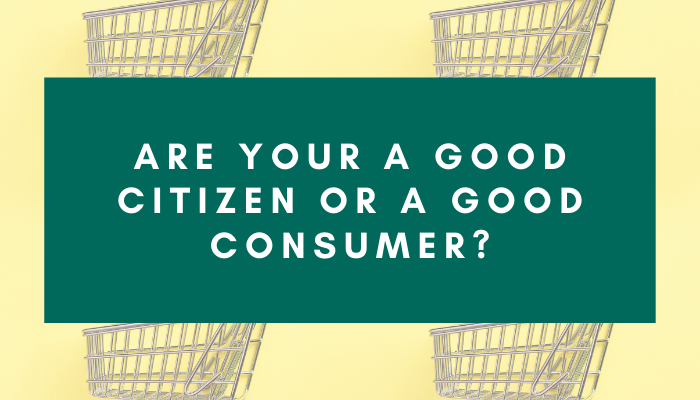
Sustainable Living, Health and Wellness, Economic Indicators, Consumerism & Our Environmental Impact
We are bombarded by economic indicators as measures of success. Gross domestic product (GDP) measures a ‘healthy’ economy. Consumer confidence as a measure of our willingness to spend money. Consumer price index (CPI) as a measure of inflation. Global stock market reports accompanying every news bulletin together with exchange rates of every major currency and gold and petrol prices. Unemployment rates accompanying concerns about wage growth; credit, either through bank loans or credit card facilities, ‘helping’ maintain lifestyle….or just life.
Fuelled by an almost endless stream of bad news in every far-flung corner of the world its not hard to feel fatalistic. Therefore it’s understandable why we indulge in retail therapy, or just have a drink and enjoy your food.
The message is clear; consumption is what drives our society. And yet it is this unfettered consumption, which places us under financial strain and is stressing our environment, without fulfilling or contributing to our health and wellbeing, let alone our happiness.
When it comes to our individual health and the health of our planet, it seems that things are not going well. While we congratulate ourselves on living longer, the incidence of chronic degenerative diseases is going up and affecting people at a younger age. It’s a subject I cover in the first part of my book A Life Less Stressed.
It’s a great economic model.
Food and chemical industry produces foods our ancestors wouldn’t have recognised and an array of chemicals humans have never been exposed to. Our obsession with technology (I’m not immune) exposes us to electromagnetic radiation, we keep close to our bodies and brains. It’s addictive and means we hardly move.
A healthcare system, struggling under the weight of these epidemics in non-communicable diseases is ably ‘assisted’ by the pharmaceutical industry that then helps manages these chronic diseases that have emerged from these nutritional and environmental experiments we call the modern industrial world.
The lines between consuming goods have become blurred as people consume the foods and chemicals (household and personal care products) that cause disease and then become consumers of the chronic disease management system. The current model of healthcare is unsustainable, particularly with our aging population. The human costs of illness, mental and physical debilitation, and premature loss of life dwarfs any financial situation.
It’s a great economic model for driving all the economic indicators. If you choose to be a consumer of all these things, there are industries waiting to embrace you. The problem is it’s not a very good health model, individually or globally.
It’s time to focus on being a good citizen (not a good consumer).
It’s time to start making decisions that are good for your own health and the health of the planet; the two are inseparable.
The book, I have written, the podcast I am doing and the programs we offer are a ‘call-to-action’. Your health and the health of the planet are just too important to ignore or to leave to someone else.
Join me on that journey; take control, build resilience and be the best you can be.
